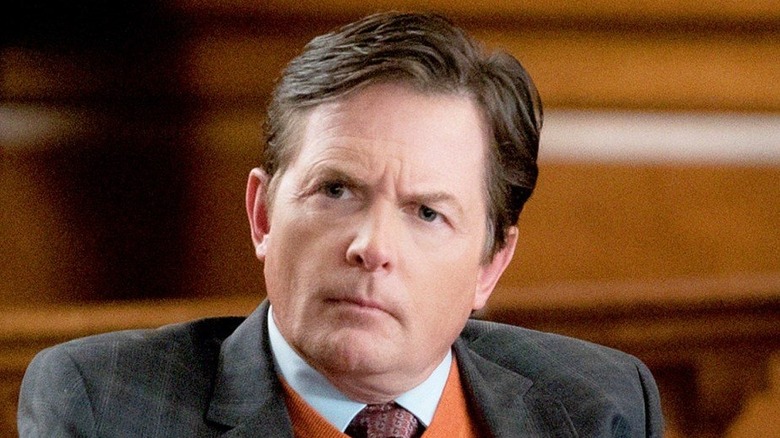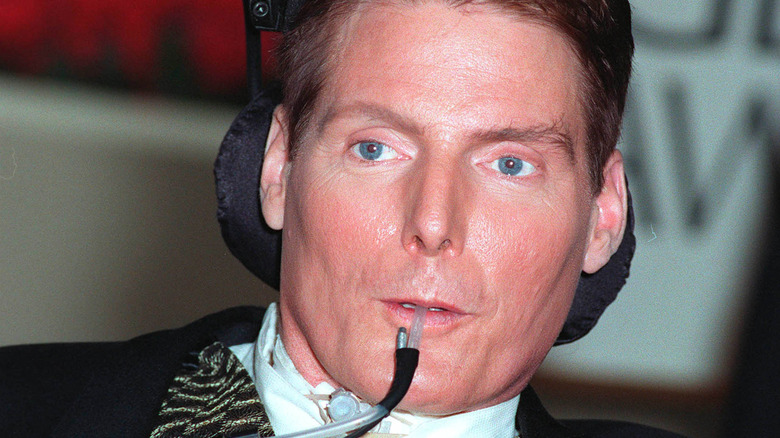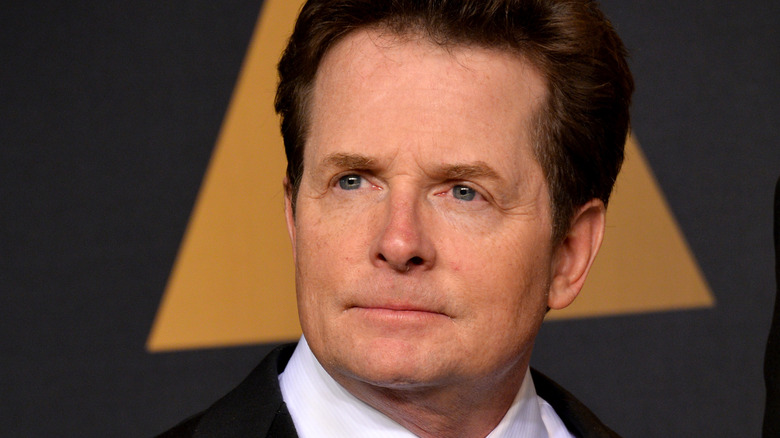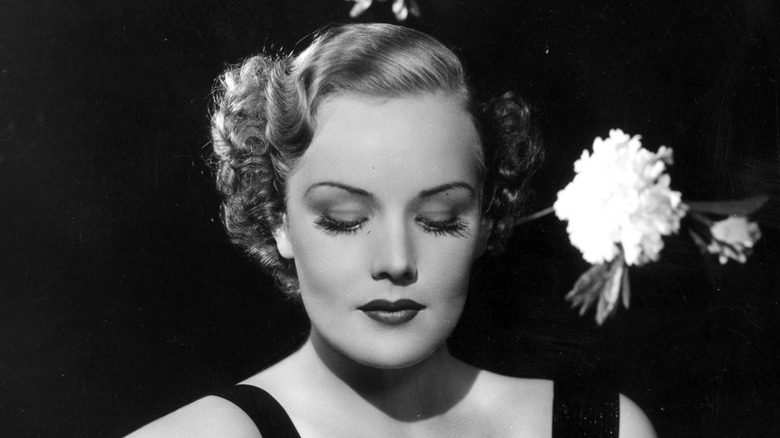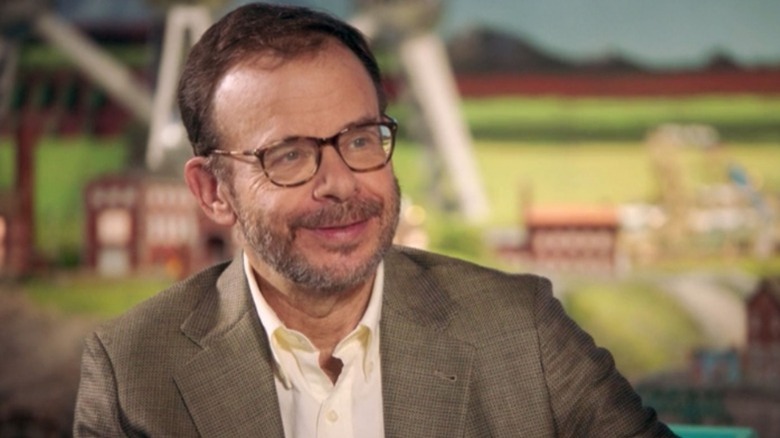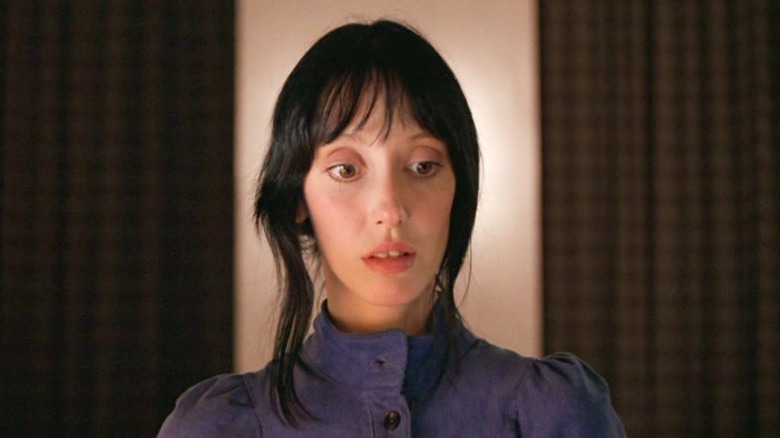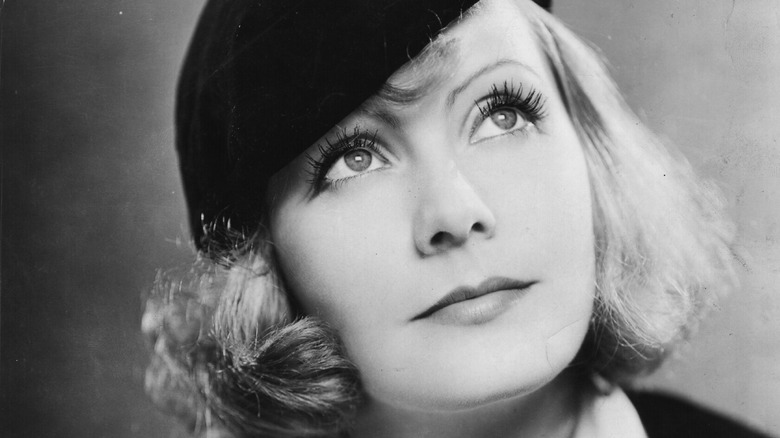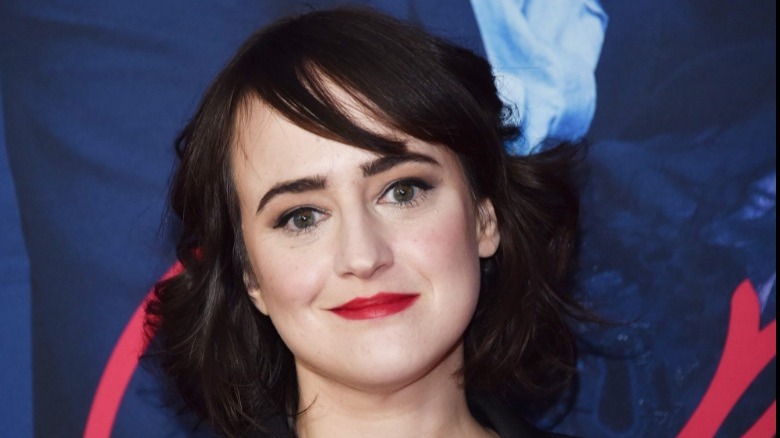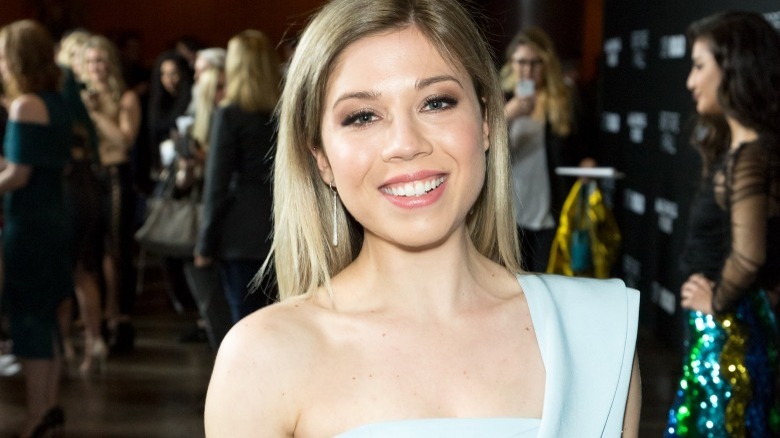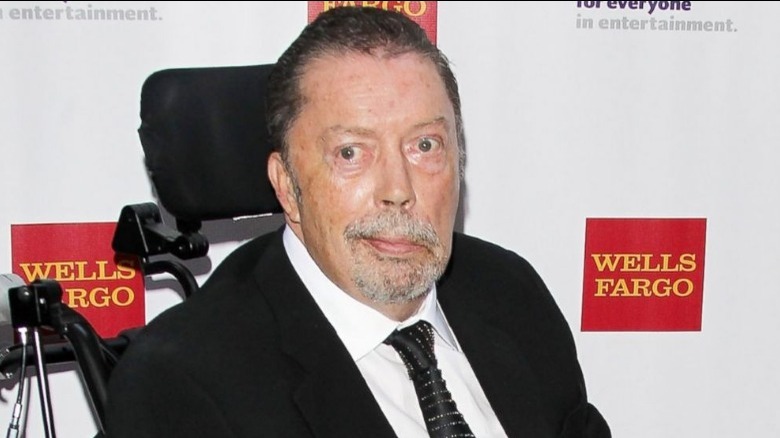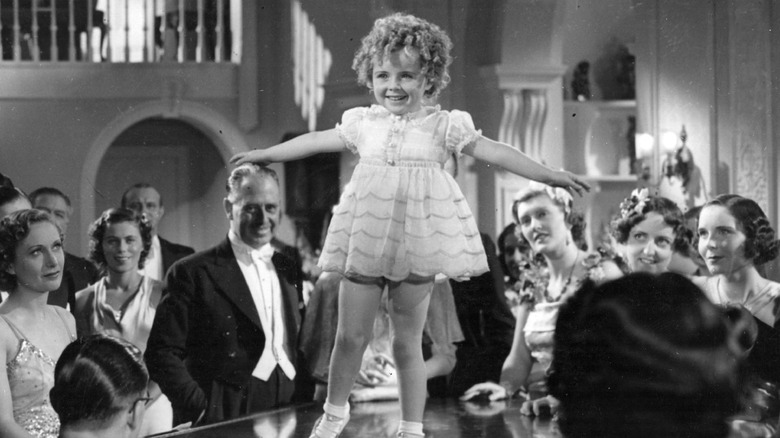Sad Reasons These Actors Quit Hollywood
Successful Hollywood actors are envied by millions the world over. Their careers can be long, varied, and immensely rewarding, especially if they win an Oscar or two. Many of them become mind-bogglingly rich and own palatial homes. They enjoy fame and all the privileges that come with it. They even get free stuff thrown at them by companies hoping to get their products in the spotlight. With the exception of figures such as Sean Connery and Gene Hackman, actors rarely retire from this lifestyle in the way a conventional person retires at 65.
After all, why would they? Hollywood loves a comeback, but leaving the business often means losing out on prime roles and fading from the public's attention. Those who do retire often make the decision involuntarily due to a personal tragedy, while others become disillusioned after getting pigeonholed into roles they never wanted. Some, often child actors, leave the movie business because they consider it hostile or toxic.
Here is a selection of successful actors who left Tinseltown for reasons that range from regrettable to downright devastating.
Amanda Bynes
Many '90s kids will remember Amanda Bynes' turn in Nickelodeon's "All That." Her zany, attention-stealing energy was watchable enough to land her a sketch show of her own, fittingly called "The Amanda Show," and a lead role on "What I Like About You."
From there, she transitioned to film, picking up lead roles in "What a Girl Wants" (2003) and the teen Shakespeare film "She's the Man" (2006). She also appeared as part of the ensemble cast of "Hairspray" (2007), which made a tidy profit at the box office. In 2010, she played the gossipy, moralizing mean girl in "Easy A," another well-received teen literary adaptation, opposite Emma Stone.
Despite these apparent successes, Bynes tweeted in 2010, "If I don't love something anymore I stop doing it. I don't love acting anymore so I've stopped doing it." Just a month later, Bynes tweeted that she had "unretired." She then deleted her Twitter account altogether, only to get a new one. These were the early signs of what became a long and highly publicized series of mental health episodes, including a string of DUIs and hit-and-runs, an arrest that involved her throwing a bong out of her 36th-floor Manhattan apartment (the charges were later dismissed), and a lot of very bad wigs. She also accused her father of abuse only to recant this accusation in a bizarre tweet: "My dad never did any of those things... The microchip in my brain made me say those things but he's the one that ordered them to microchip me." She threatened a lot of people with a lot of lawsuits, reserving particular ire for any tabloid that claimed she was misusing drugs.
Finally, in 2013, Bynes entered rehab. In 2014, she tweeted that she had been diagnosed with bipolar and manic depression and that she was in treatment. Bynes seems to be on the mend. Although "Easy A" remains her last role, she revealed in a 2017 interview that she was three years sober and wanted to act again.
Cameron Diaz
A hot commodity in the 1990s and 2000s, Cameron Diaz had a very successful career and earned enough money to lead several lifetimes of luxury. From her first acting experience in 1994's "The Mask" to her starring turn in "There's Something About Mary," and from Spike Jonze's "Being John Malkovich" (1999) to Martin Scorsese's "Gangs of New York" (2002), her filmography shows considerable range.
Yet creative block happens to the best of us. This is why Diaz hasn't appeared in a film since "Annie," the musical comedy remake from 2014. Speaking at a summit hosted by Gwyneth Paltrow, Diaz said, "I just went, 'I can't really say who I am to myself,' which is a hard thing to face up to. I felt the need to make myself whole." She has few regrets about retiring.
She's kept busy over the last seven years. In 2015, Diaz married Good Charlotte lead guitarist Benji Madden, having been introduced to each other by Nicole Richie 10 months prior. Their daughter, Raddix, was born in 2019. Before that, in 2016, Diaz published "The Longevity Book: The Science of Aging, the Biology of Strength, and the Privilege of Time," which followed 2013's "The Body Book: Feed, Move, Understand and Love Your Amazing Body." There but for the grace of Goop we go.
Christopher Reeve
Christopher Reeve once had a thriving career. A graduate of Juilliard, Reeve had his breakout role in the original "Superman" movie from 1978 and went on to appear in "The Remains of the Day" (1993) and many plays.
In 1995, Reeve attended a dressage and show jumping event in Culpepper, Virginia. He'd learned to ride in 1985 for his performance as Count Vronsky in "Anna Karenina" and fell in love with the sport, developing a close bond with Eastern Express, his American thoroughbred. Tragically, Eastern Express suddenly balked on the third jump in the final competition, sending Reeve over the saddle and on to his head, crushing his first and second vertebrae. This devastating injury paralyzed the actor from the neck down, causing him to use a wheelchair and ventilator for the rest of his life. According to one of Reeve's physicians, the actor would have died instantly had he fallen 1 centimeter to the left and experienced only a concussion had he fallen 1 centimeter to the right.
Reeve was not a quitter. He pulled through intense grief and suicidal thoughts to lead a busy life, which included campaigning for research into spinal injuries and stem cell therapy, raising some $138 million for researchers around the world. He had a few appearances, such as the TV remake of "Rear Window" and the CW's "Smallville," and forayed into directing, but his acting experience largely ended with the accident.
After a period of ill health, Reeve died of heart failure in 2004 at age 52.
Michael J. Fox
In 1985, Michael J. Fox became one of Hollywood's hottest young actors with the role of Marty McFly in "Back to the Future," a rip-roaring sci-fi comedy that topped the box office and became a classic of American cinema. Fox reprised McFly in two sequels while continuing his run on hit NBC sitcom "Family Ties." He also starred in "Teen Wolf," "Bright Lights, Big City," and "Casualties of War," which developed his acting chops.
It was during the production of "Doc Hollywood" in 1991 that Fox noticed that his finger was twitching and that he had a creeping pain in his shoulder. These were symptoms of early onset Parkinson's disease — a shocking revelation, since most people who get the condition are over 60. Doctors told the 29-year-old actor that his career would be over in just a few years. Fox proved them wrong with a busy career that included roles in "Mars Attacks" and "Stuart Little." His biggest success was the Emmy-winning sitcom "Spin City," which saw him play Deputy Mayor of New York City Mike Flaherty for 103 episodes.
Fox retired from the show in 2000 because of his worsening condition. Regular TV work followed in the 2000s and 2010s, including turns in "Curb Your Enthusiasm," "The Good Wife," and "The Michael J. Fox Show," a sitcom inspired by the actor's life. Sadly, Fox wrote in his 2020 memoir that he was entering a 'second retirement' because of new symptoms including delusions, memory loss, and dementia.
Frances Farmer
Frances Farmer had dreams of a theater career when she signed a seven-year contract with Paramount in the mid-1930s. Under this contract, Farmer performed with Bing Crosby in "Rhythm on the Range," Cary Grant in "The Toast of New York," and Walter Brennan in "Come and Get It," which was directed by Howard Hawks and William Wyler, both legends of Hollywood's Golden Age. Still craving success on the stage, Farmer joined Broadway productions helmed by Clifford Odets and Elia Kazan.
She was splitting her time between New York and Los Angeles when her mental health collapsed in 1942—a year that brought her divorce, drunken traffic violations, and cancellation of her contract. Farmer spent the rest of the 1940s in and out of hospitals and sanitariums. Farmer claimed she was abused at these institutions in her posthumous autobiography, though the book may have been embellished.
After a comeback appearance on "This is Your Life" in 1958, Farmer had several television appearances and a role in one film, "The Party Crashers." This would be among her last on-screen performances. Farmer died of esophageal cancer in 1970 at age 56. Partly because of her radical-leaning politics in her youth and partly because of her tragic life, Farmer became something of a cult figure. Even Kurt Cobain was a fan.
Rick Moranis
Rick Moranis became a household name in the 1980s with roles in "Ghostbusters" and "Little Shop of Horrors." But in the years after his wife's death in 1991, Moranis decided that he couldn't juggle acting with parenting: "I'm a single parent and I just found that it was too difficult to manage to raise my kids and to do the traveling involved in making movies. So I took a little bit of a break. And the little bit of a break turned into a longer break, and then I found that I really didn't miss it." His last major role was 1997's direct-to-video entry in the "Honey, I Shrunk the Kids!" franchise.
Contrary the popular belief, Moranis isn't retired. He's done the occasional voice acting role and keeps an open, if very picky, mind with respect to live-action roles. Unlike his co-stars Bill Murray, Sigourney Weaver, and Dan Aykroyd, Moranis declined to appear in the 2016 "Ghostbusters" reboot, stating that it "didn't appeal to [him]." However, Moranis has apparently been tempted to reprise the role of Wayne Szalinski in "Shrunk," the planned reboot of "Honey, I Shrunk the Kids!"
Shelley Duvall
Shelley Duvall was once one of Hollywood's most recognizable faces. She rose to fame in the 1970s for her collaborations with famed director Robert Altman, including "Brewster McCloud" (1970), "McCabe & Mrs. Miller" (1971), "Nashville" (1975), and "3 Women" (1977), nearly all of which are now considered must-watch classics. Her success continued into the 1980s with such films as Stanley Kubrick's "The Shining" (1980), which was an infamously difficult and traumatic production for Duvall; "Popeye" (1980), another Altman feature; and "Roxanne" (1987).
After TV appearances and supporting roles in the 1990s, Duvall quit Hollywood in 2002 and led a reclusive life with her husband in her home state of Texas. In 2016, she gave an interview on "Dr. Phil" that raised serious questions about her mental health. Disheveled and barely recognizable, Duvall made a series of bizarre claims, such as that Robin Williams was still alive and that he'd become a 'shapeshifter,' adding that "He looks real good in some forms, in other forms he doesn't." Many commentators derided the interview, calling it "craven" and "sensational."
In January 2021, Seth Abramovitch of The Hollywood Reporter managed to locate Duvall in Texas Hill Country and interview her. Happily, Abramovitch found that Duvall possessed a "sharp memory" full of "engrossing" stories. In the nuanced, reflective piece, Abramovitch noted that while the former actress could be "gripped by anxiety attacks or meander into unsettling descriptions of alien-surveillance programs," she could also "converse for long, coherent stretches and conjure up the slightest details about her life." Abramovitch speculated that Duvall fled to Texas for both mental health and financial reasons.
Although it's sad that we won't see Duvall's considerable talents onscreen, it is reassuring to see that the "Dr. Phil" interview was a tabloid misrepresentation of Duvall's mental health.
Greta Garbo
Sometimes, the critics really do hurt. This was the case for Greta Garbo, whose 1941 film "Two-Faced Woman" was so maligned that the iconic actress left Tinseltown. She was 36 years old and had made 31 movies in just 20 years, which reflected not just her work ethic but also her enormous popularity in both the U.S. and her native Europe. She had even made the transition from silent films to talkies, a rare feat among her contemporaries.
Yet Garbo found little satisfaction in her career, preferring the solitude she pursued from 1941 until her death in 1990, aged 85. She was almost persuaded to return on two occasions: first an offer to play French novelist George Sand, and then a lead role in Alfred Hitchcock's "The Paradine Case." Ultimately, she decided to stick to her private, drifting lifestyle. "I am almost always alone and talk to myself," she wrote in a letter to her friend Martha Wachtmeister. "I drive to the beach and take walks and that's always marvelous. But that's it."
Mara Wilson
Mara Wilson became one of the biggest child stars in Hollywood after her performances in "Mrs. Doubtfire" and "Matilda." However, when Wilson reached puberty in the early 2000s, the roles suddenly dried up. When she did get auditions, she realized she was getting typecast as a "fat girl" stock character. Speaking with People magazine, Wilson said, "I realized, 'I don't fit their idea of what a Hollywood actress looks like, so there's no room for me here.'" She also said she sometimes "wished to be in an accident where [she'd] injure [her] nose and jaw so [she] could get reconstruction guilt-free."
Wilson decided to focus on schooling rather than her acting career, eventually attending New York University. Sadly, the pressures of Hollywood stayed with her, especially when she saw actresses her age, such as Scarlett Johansson and Kristen Stewart, on magazine covers. Fortunately, Wilson was able to manage these anxieties through writing. These days, she lives in New York as a comedy writer, voice actress (with credits including "BoJack Horseman"), and notable Twitter persona.
Jennette McCurdy
Jennette McCurdy rose to fame as Sam Puckett in "iCarly," a Nickelodeon sitcom that ran from 2007-2012. She reprised the role in the spin-off "Sam & Cat" and made appearances in shows such as "Malcolm in the Middle" and "Lincoln Heights."
Sadly, McCurdy looks back on this success very negatively, saying, "I resent my career in a lot of ways. I feel so unfulfilled by the roles that I played and felt like it was the most cheesy, embarrassing. I did the shows that I was on from like 13 to 21, and by 15, I was already embarrassed." Consequently, McCurdy decided to focus on writing and directing. She briefly returned to acting in early 2020 for her stage show "I'm Glad my Mom Died," which depicts how McCurdy dealt with her mother's death from cancer in 2013.
However, in a recent podcast with Anna Faris, McCurdy said that she was "done" with acting, explaining that acting was "always difficult for me." She also said that she acted primarily to support her family, but no longer felt the need to do so after the loss of her mother. She's certainly steering clear of the "iCarly" reboot.
Tim Curry
Tim Curry has had a long and busy career, logging some 236 credits on IMDb. This eclectic body of work includes "The Rocky Horror Picture Show," "IT," "The Hunt for Red October," "Clue," and "Congo," as well as dozens of TV appearances and Broadway shows. The British actor was working on around six projects a year when he suffered a debilitating stroke in 2012, which affected his speech and caused to him use a wheelchair. Since then, Curry has done only voice acting.
Curry has said that his sense of humor has been "absolutely vital" to his recovery, adding that "It's not tough to maintain, it is just part of my DNA." He made one of his first public appearances since his stroke to accept a lifetime achievement award at the 19th Actors Fund Tony Awards Viewing Party in 2015. He was very grateful for the award, explaining that it "solidifies the kind of work the American acting community has given me for years now... I was thrilled when they told me and I am thrilled now."
Shirley Temple
Shirley Temple was just 6 when she starred in the 1934 film "Bright Eyes," a musical so popular it was said to have saved the Fox Film Corporation from bankruptcy. Her success continued through the 1930s with hits like "The Little Colonel," "Curly Top," and "Heidi." She became the most lucrative star in America, dethroning the likes of Clark Cable, Bing Crosby, and Joan Crawford.
This winning streak brought Temple fame and fortune, but also pushy parents and cruel production teams. For example, Temple was disciplined by being forced to sit on ice blocks during the production of "Baby Burlesks."
When "The Blue Bird" became Temple's first unsuccessful film, fickle Fox executives canceled her contract. After signing with MGM in 1941, Temple met with "The Wizard of Oz" producer Arthur Freed, who had plenty of advice for the 12-year-old actress. "First we get rid of the baby fat," Freed began, "then new hair. Teach you to belt a song, and some decent dancing." Freed then began "fumbling in his lap" and exposed himself to Temple, who laughed so much that he angrily demanded that she leave his office.
Years later, Temple told Larry King that after this incident she returned to Fox for the remainder of the 1940s. There were some successes, namely the 1947 comedy "The Bachelor and the Bobby-Soxer," but nothing compared to her peak. In 1950, dissatisfied with recent roles and wary of being forever typecast, Temple quit Hollywood at just 22 years old only to find that her parents had wasted the vast majority of her $3.2 million dollar fortune, leaving her with a mere $44,000.
All these difficulties had the makings of a typical Hollywood descent into drugs and self-destruction, but not for Temple. After an unsuccessful run for Congress in 1967, Temple was appointed to the United Nations General Assembly by President Nixon. Temple served as Ambassador to Ghana and Chief of Protocol during the Ford Administration, and then as Ambassador to Czechoslovakia under George H. W. Bush. She passed away in 2014 at age 85.
